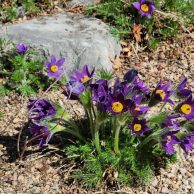
As part of HG’s commitment to supporting local ecology and local economy, we have the pleasure of connecting with and (mutually) supporting small growers in our state and our region. Yesterday, I paid a visit to our immensely talented and dedicated off-site custom propagator, Sue J., in Fort Collins. Sue is a self-taught organic grower with decades of experience. She is a nurturer by nature, singlehandedly managing three large hoop houses full of thousands of vegetable, herb and annual flower starts, many of our most interesting and hard-to-propagate perennials, and some woody shrubs. And when she gets home, she raises award-winning alpacas and llamas and tends to a sweet rescue dog who never leaves her side.[Read More]

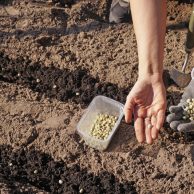 March is bringing us a characteristic tilt of the see-saw that this month always brings. Tank tops can go back in the drawer for a little while, as this week we will see night-time temperatures dipping into the mid-20s. We are expecting rain (~1.6 inches in Boulder, ~3 inches in Denver!), and heavy, wet snow, too. We’ve been here before; no need to panic. And we need the moisture!
March is bringing us a characteristic tilt of the see-saw that this month always brings. Tank tops can go back in the drawer for a little while, as this week we will see night-time temperatures dipping into the mid-20s. We are expecting rain (~1.6 inches in Boulder, ~3 inches in Denver!), and heavy, wet snow, too. We’ve been here before; no need to panic. And we need the moisture!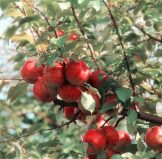 APPLE
APPLE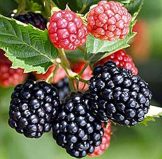 BLACKBERRY
BLACKBERRY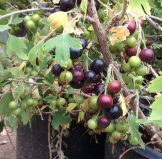 CURRANT
CURRANT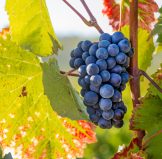 GRAPE
GRAPE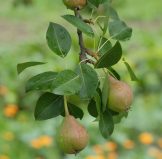 PEAR
PEAR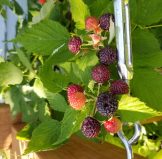 RASPBERRY
RASPBERRY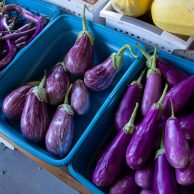

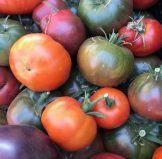 HARLEQUIN’S GARDENS 2025 TOMATO STARTS
HARLEQUIN’S GARDENS 2025 TOMATO STARTS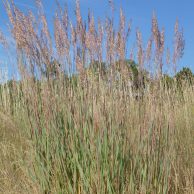
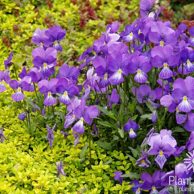
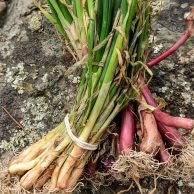
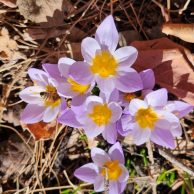
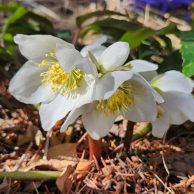
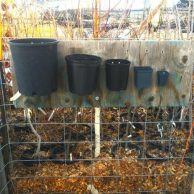 At Harlequin’s Gardens, we’ve been reusing and recycling black plastic nursery pots since day one. It is very important to us that we minimize our plastic waste. We have always encouraged our customers to bring back to us the nursery pots that came with the plants you purchased from us, and you have responded with enthusiasm, which we appreciate!
At Harlequin’s Gardens, we’ve been reusing and recycling black plastic nursery pots since day one. It is very important to us that we minimize our plastic waste. We have always encouraged our customers to bring back to us the nursery pots that came with the plants you purchased from us, and you have responded with enthusiasm, which we appreciate!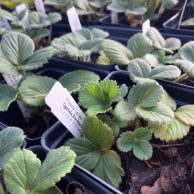

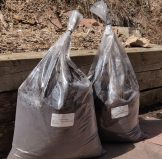
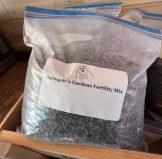
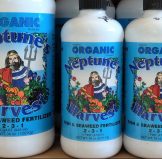 Neptune’s Harvest Organic Fertilizers
Neptune’s Harvest Organic Fertilizers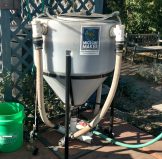 Compost Tea
Compost Tea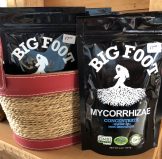 Big Foot Mycorrhizae
Big Foot Mycorrhizae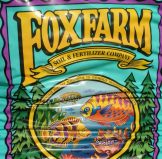 Fort Vee
Fort Vee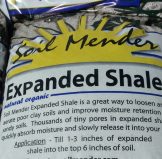 Expanded Shale
Expanded Shale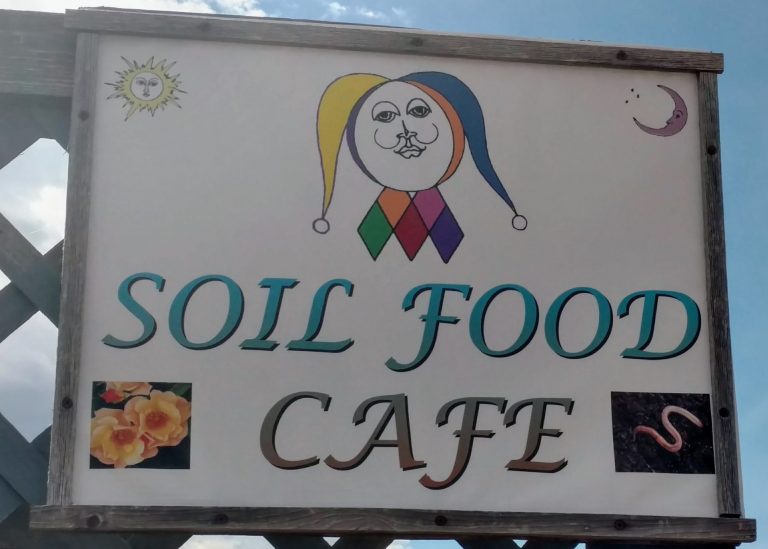
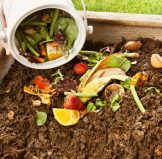 So even though there is nothing you can do at the moment, very soon, before it’s warm enough to plant, you can start making your bed sexy. Sexy soil sprouts seeds, grows roots and leaves, builds strength, makes flowers and fruit, and defends against pests.
So even though there is nothing you can do at the moment, very soon, before it’s warm enough to plant, you can start making your bed sexy. Sexy soil sprouts seeds, grows roots and leaves, builds strength, makes flowers and fruit, and defends against pests. Let the biology do a lot of the work. It’s not hard to add more later; it’s very hard to correct too much. Keep the soil covered with mulch or living plants. Even native plants appreciate some compost to hold moisture and provide a light feeding when they are young. One more thing: avoid poisonous pesticides, fungicides and herbicides, like the plague. They kill or undermine the health of your allies—the soil life. Toxic pesticides are the opposite of sexy; they are like inviting the Grim Reaper into the bedroom. There are effective, non-toxic alternatives.
Let the biology do a lot of the work. It’s not hard to add more later; it’s very hard to correct too much. Keep the soil covered with mulch or living plants. Even native plants appreciate some compost to hold moisture and provide a light feeding when they are young. One more thing: avoid poisonous pesticides, fungicides and herbicides, like the plague. They kill or undermine the health of your allies—the soil life. Toxic pesticides are the opposite of sexy; they are like inviting the Grim Reaper into the bedroom. There are effective, non-toxic alternatives.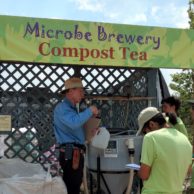 What about no-till? Not turning the soil makes sense once you’ve got the soil life in a good environment. Then you don’t want to disturb the symbiotic networks. Then you can feed from the surface; good tilth and worms will take the food down.
What about no-till? Not turning the soil makes sense once you’ve got the soil life in a good environment. Then you don’t want to disturb the symbiotic networks. Then you can feed from the surface; good tilth and worms will take the food down.
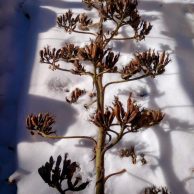


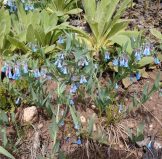
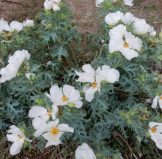
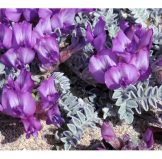
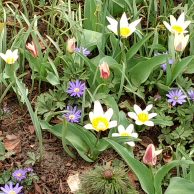
 Well, that was a false alarm!
Well, that was a false alarm!
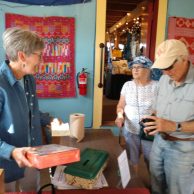



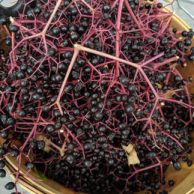
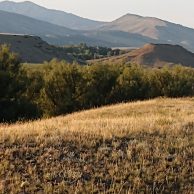
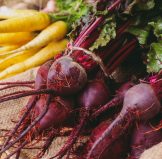 from Mitten Lowe at
from Mitten Lowe at 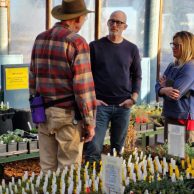
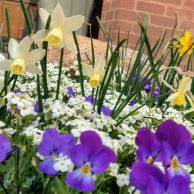
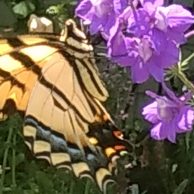
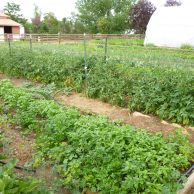 Every 5 years or so Congress has the opportunity to transform our food system by revising a piece of legislation known as the Farm Bill, which covers everything from supporting farmers to ensuring food security for all. Politicians and local and national advocacy organizations are working to determine how nearly a billion dollars a year will be spent. You can help!
Every 5 years or so Congress has the opportunity to transform our food system by revising a piece of legislation known as the Farm Bill, which covers everything from supporting farmers to ensuring food security for all. Politicians and local and national advocacy organizations are working to determine how nearly a billion dollars a year will be spent. You can help! 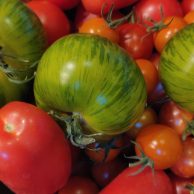 A Few New & ‘New Again’ TOMATOES:
A Few New & ‘New Again’ TOMATOES: 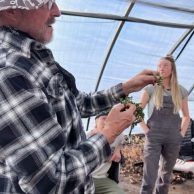
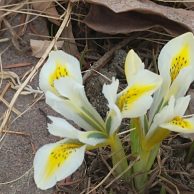
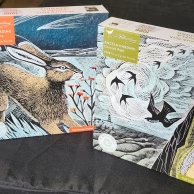 Some of our favorite gifts encourage experimentation, thinking, engaging with nature, and providing activities that let folks of all ages share an experience. Choose from books that inspire imagination, tools to bring new things to light (binoculars, microscopes, loupes and more), Zometool building kits for all ages, activity backpacks, and puzzles.
Some of our favorite gifts encourage experimentation, thinking, engaging with nature, and providing activities that let folks of all ages share an experience. Choose from books that inspire imagination, tools to bring new things to light (binoculars, microscopes, loupes and more), Zometool building kits for all ages, activity backpacks, and puzzles.
 It’s time to plant ‘cool-season’ crops! And for your tomatoes, peppers and eggplants, this is a great week to feed them with Neptune Tomato and Vegetable Fertilizer – well-fed plants provide a better harvest!
It’s time to plant ‘cool-season’ crops! And for your tomatoes, peppers and eggplants, this is a great week to feed them with Neptune Tomato and Vegetable Fertilizer – well-fed plants provide a better harvest!